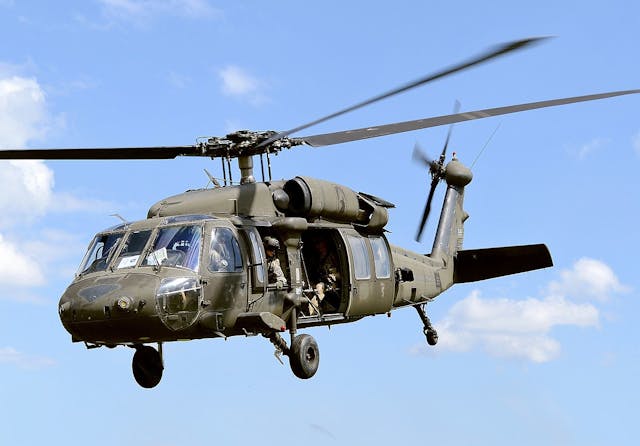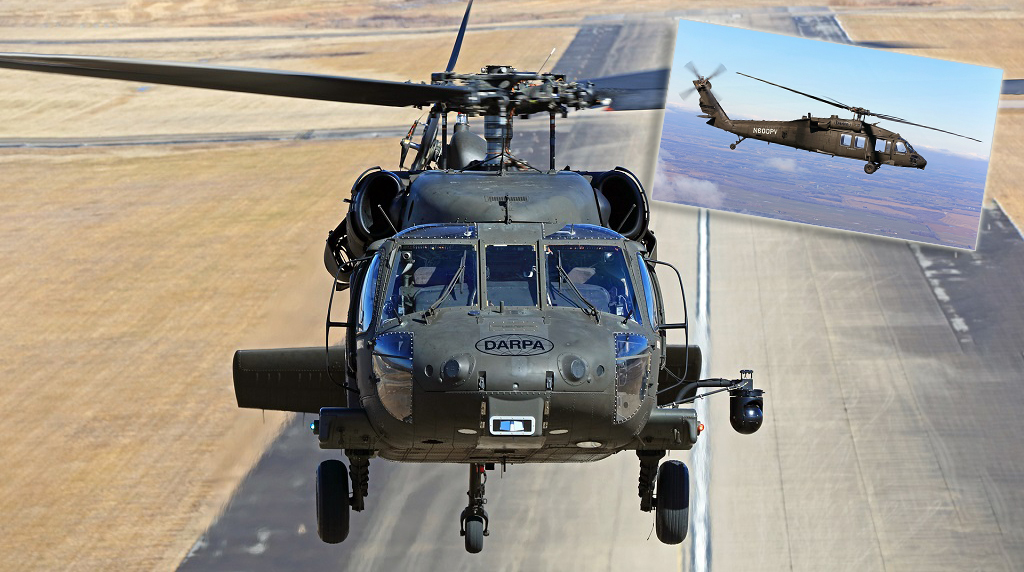The Duty of UH 60 in Modern Armed Force Workflow
The Duty of UH 60 in Modern Armed Force Workflow
Blog Article
The Impact of Lasting Practices on the Future of Aircraft Procedures and Emissions Decrease
As the aeronautics sector encounters enhancing examination over its environmental influence, the adoption of lasting practices arises as a vital pathway towards future airplane procedures and exhausts reduction. Developments in lasting aviation fuels and innovations in hybrid propulsion technologies stand at the forefront of this makeover, appealing substantial decreases in greenhouse gas discharges. The successful combination of these efforts pivots on a variety of aspects, including regulatory frameworks and market collaboration. The concern remains: exactly how will these advancing methods improve the characteristics of air travel and add to an extra sustainable future?

Introduction of Lasting Practices
Sustainable techniques in aircraft operations incorporate a series of techniques aimed at reducing ecological influence while preserving operational effectiveness. These techniques are important in the air travel industry's dedication to minimizing its carbon footprint and adhering to global ecological standards. Secret initiatives include enhancing trip paths to reduce fuel usage, improving maintenance methods to ensure aircraft run at peak effectiveness, and executing advanced technologies such as winglets and light-weight materials that improve the rules of aerodynamics.

Educating and involving team on sustainability practices likewise play a vital duty, fostering a culture of environmental responsibility within organizations. On the whole, the integration of these lasting techniques not just helps in reducing discharges however also boosts the lasting practicality of the aviation sector, ensuring it satisfies the needs of both consumers and governing bodies while contributing to worldwide sustainability objectives.
Cutting-edge Gas Alternatives
Various cutting-edge fuel options are arising as essential remedies to lower the aviation sector's dependence on typical nonrenewable fuel sources. Among these options, Lasting Air travel Gas (SAFs) have actually obtained considerable focus because of their potential to decrease lifecycle greenhouse gas discharges by up to 80% contrasted to standard jet gas. SAFs are obtained from various feedstocks, including waste oils, farming residues, and even algae, making them a flexible alternative for the sector.
One more encouraging option is hydrogen gas, which, when used in gas cells, creates just water vapor as a result. Furthermore, electric propulsion systems are being discovered, leveraging battery innovation to power airplane.
Lastly, biofuels stemmed from biomass are being examined, offering an eco-friendly alternative that can be blended with traditional fuels. Jointly, these ingenious gas choices stand for an important action towards attaining a sustainable aviation community, aligning with international discharges reduction targets and boosting the market's environmental stewardship.
Technical Improvements in Aeronautics

How can technological innovations improve the future of air travel? The integration of cutting-edge modern technologies is crucial in transforming aircraft procedures, enhancing efficiency, and minimizing discharges. Innovations such as hybrid and electric propulsion systems go to the forefront, encouraging considerable decreases in fuel consumption and greenhouse gas emissions. These systems leverage improvements in battery innovation and energy monitoring, enabling aircraft to operate with a reduced environmental impact.
Moreover, the execution of innovative products, such as light-weight compounds, adds to enhanced aerodynamics and fuel efficiency. Making use of expert system and artificial intelligence in trip operations maximizes route planning and reduces fuel burn by allowing real-time modifications based upon climate and website traffic problems. Additionally, the advancement of independent and from another location piloted aircraft systems stands to change cargo and traveler transport, possibly increasing efficiency while lessening human mistake.
Moreover, lasting air travel innovations, including innovative air website traffic management systems, can improve operations and reduce congestion, bring about reduced exhausts during trip. These developments collectively stand for a paradigm change in aviation, guaranteeing a future where sustainability and operational efficiency are intertwined, therefore supporting the sector's dedication to minimizing its environmental influence.

Regulatory Framework and Compliance
Taking into account the expanding emphasis on environmental stewardship within the air travel industry, the regulatory structure governing airplane operations is developing to promote sustainable practices. Regulative bodies, such as the International Civil Aviation Company (ICAO) and various national aeronautics authorities, are introducing rigorous guidelines aimed at decreasing emissions and improving operational performance.
These regulations often include the adoption of Sustainable Aeronautics Gas (SAF), which has actually been recognized as a vital part in attaining lower carbon impacts. Conformity with these guidelines needs airline companies to carry out operational techniques and advanced technologies, such as maximized flight courses and improved air website traffic administration, to reduce gas usage.
In addition, the enforcement of discharges trading plans and carbon offsetting efforts is coming to be significantly prevalent, engaging airlines to monitor and report their discharges properly. Non-compliance can lead to considerable penalties, therefore pushing operators to prioritize sustainability in their service designs.
Eventually, the advancing governing landscape not just drives advancement and investment in eco-friendly modern technologies however likewise promotes a culture of responsibility within the air travel market. As these frameworks proceed to establish, the emphasis on lasting methods will be integral to attaining the sector's long-term environmental goals.
Future Fads in Airplane Procedures
As helpful site the air travel click to read industry adapts to a progressively rigorous regulative setting, future patterns in airplane operations are readied to focus on cutting-edge options that better improve sustainability and effectiveness - uh 60. Trick developments will likely consist of the fostering of innovative air traffic administration systems, which make use of real-time data and fabricated knowledge to optimize flight courses, minimizing gas consumption and exhausts
One more significant trend is the increased integration of sustainable aeronautics fuels (SAFs) These alternatives to traditional jet fuel, originated from eco-friendly resources, can substantially decrease lifecycle greenhouse gas exhausts. The industry's dedication to SAFs will likely accelerate as airline companies collaborate with gas producers to ensure schedule and cost-effectiveness.
Additionally, the push in the direction of electrification and crossbreed propulsion systems is gaining energy. Emerging aircraft styles will certainly integrate these modern technologies, using quieter and much more efficient operations, particularly for short-haul flights.
Verdict
The fostering of lasting air travel fuels, combined with improvements in electrical and hybrid propulsion systems, is necessary for minimizing lifecycle greenhouse gas emissions. Enhancing trip paths and welcoming innovative modern technologies contribute to a quieter and extra ecologically pleasant air travel industry.
Innovations in lasting air travel fuels and developments in hybrid propulsion modern technologies stand at the leading edge of this transformation, promising significant reductions in greenhouse gas exhausts.Numerous More Bonuses cutting-edge gas choices are arising as crucial services to lower the air travel industry's dependence on typical fossil fuels - uh 60. Amongst these choices, Lasting Aeronautics Fuels (SAFs) have gained significant attention due to their prospective to decrease lifecycle greenhouse gas discharges by up to 80% contrasted to conventional jet fuels.Another considerable trend is the raised combination of lasting aeronautics fuels (SAFs) The adoption of lasting aeronautics fuels, paired with innovations in electric and hybrid propulsion systems, is essential for reducing lifecycle greenhouse gas discharges
Report this page